|
|
14 - Japan Next Door | Patricia Belyea of Okan Arts
Japan Next Door
Patricia Belyea of Okan Arts
December 2023
HANSVILLE WA Four doors down from the house I rented for Thanksgiving was an amazing local museum! The website of the Issei Pioneer Museum stated that it was temporarily closed. All the same, I called to see if I could visit and made arrangements to come by that afternoon.
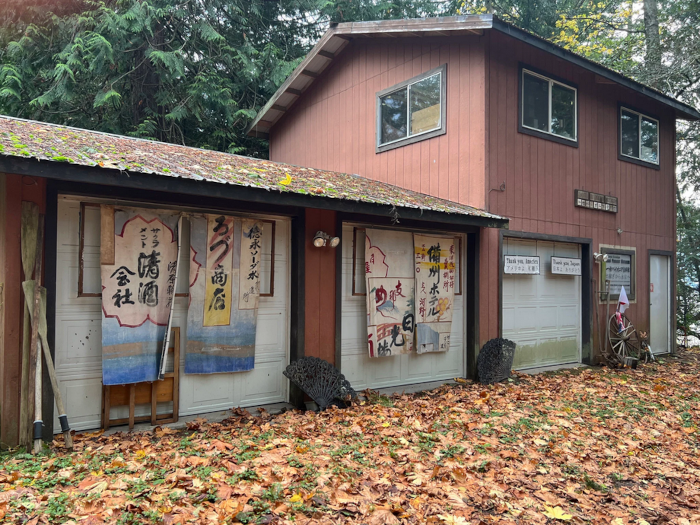
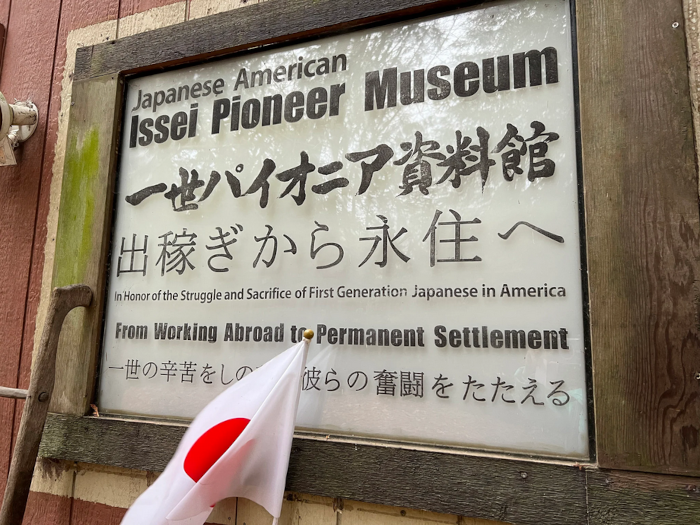
Mr. Yoshiaki Takemura greeted me upstairs in his private museum housed in a two-storey garage on his waterfront property.
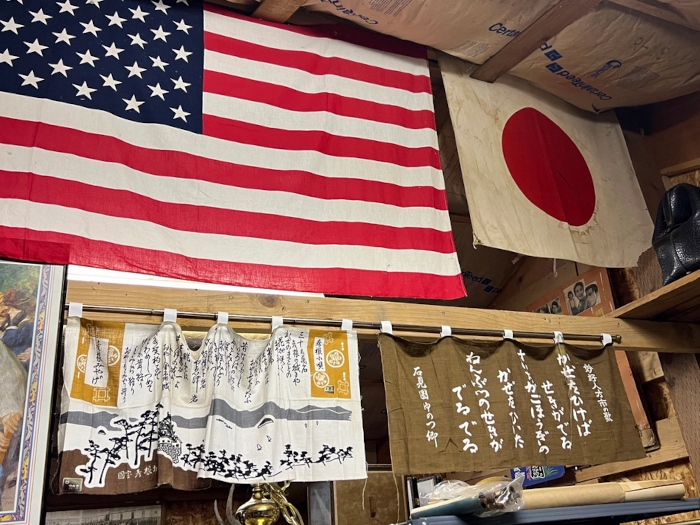
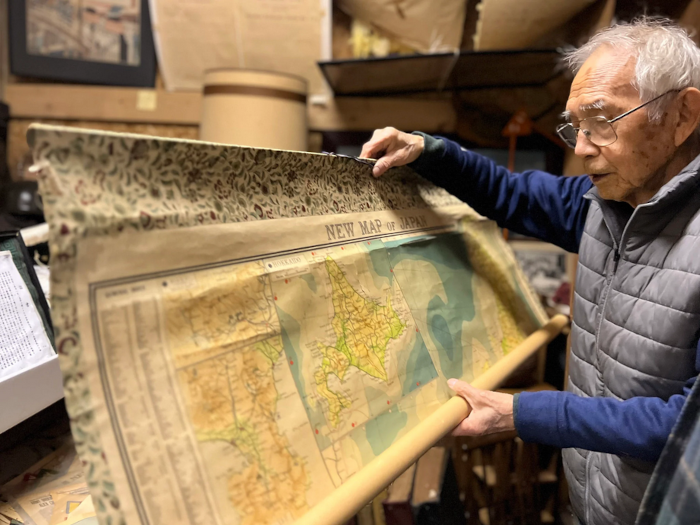
Mr. Takemura pointed out a goshinei—a portrait of Emperor Hirohito (after death his name was Emperor Showa) and his imperial family. Emperor Hirohito was the monarch responsible for the bombing of Pearl Harbor and the surrender of Japan. Goshinei were distributed to schools nationwide from 1891 until the end of World War II. At the time, the portraits were considered sacred and Japanese people were forbidden to look directly at them.
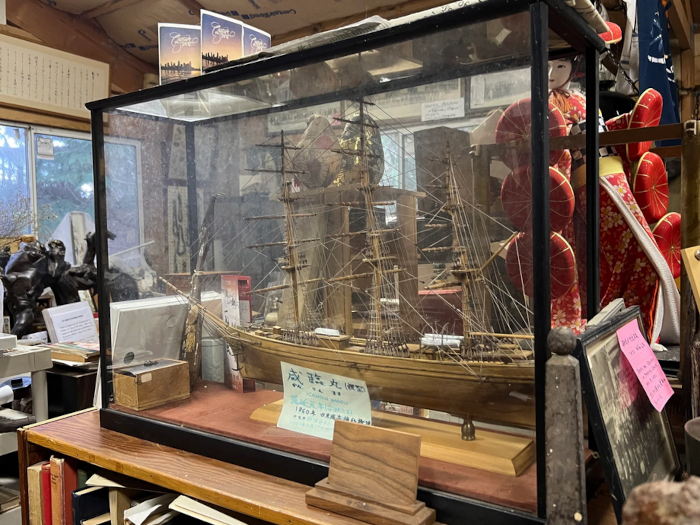
The Museum honors the first Japanese immigrants who arrived in America around 1880, as well as their descendents. These steadfast people with their spirit of gaman (endurance) and ganbaru (never give up) are an important part of American history. The non-stop treasures included a model of Kanrin Maru (Unyeilding), Japan’s first sail and screw-driven steam corvette, built in the Netherlands and delivered in 1857.
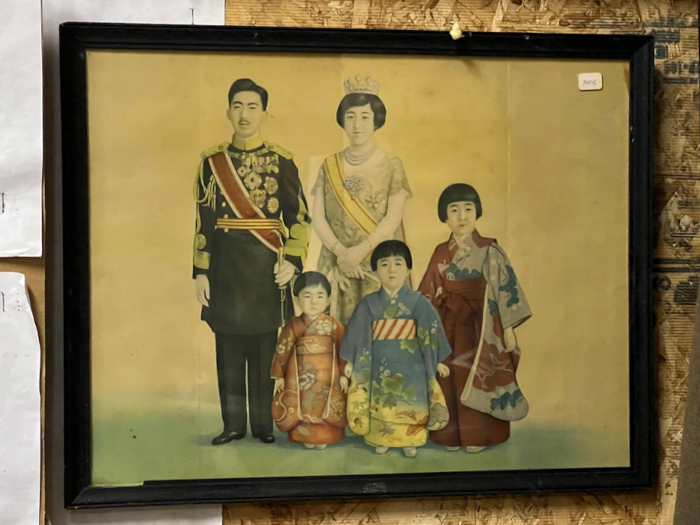
The museum displayed many artifacts from World War II from both Japan and America. Piles of yellowed newspapers screamed uppercase headlines of the war’s progress.
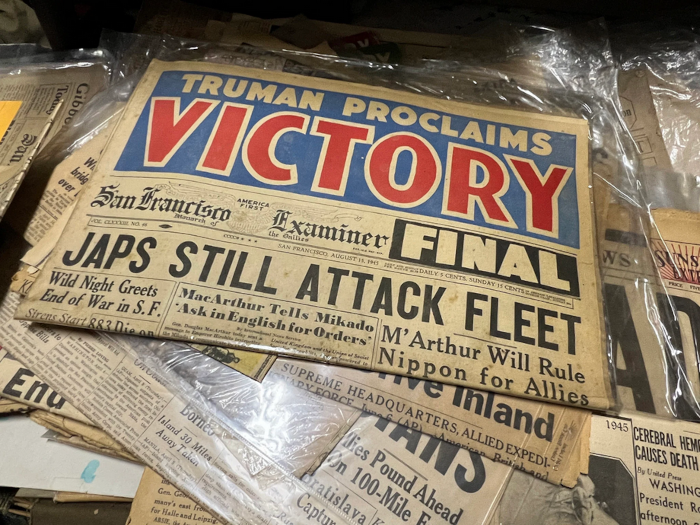
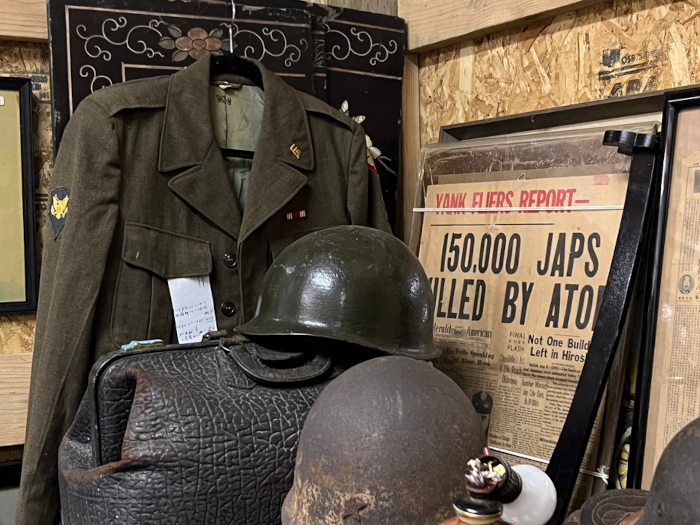
The exclusion of Japanese Americans was shown with evacuation posters and objects from the detention camps — a frog purse, a shogi set carved from scavenged ironwood, a chunk of petrified wood, and more.
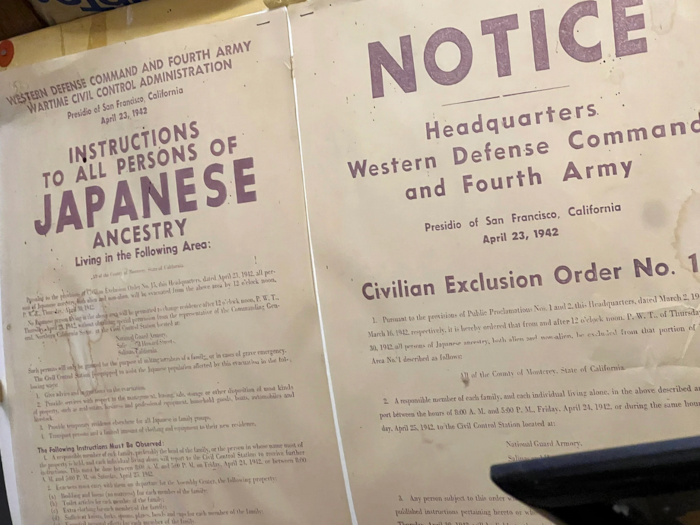
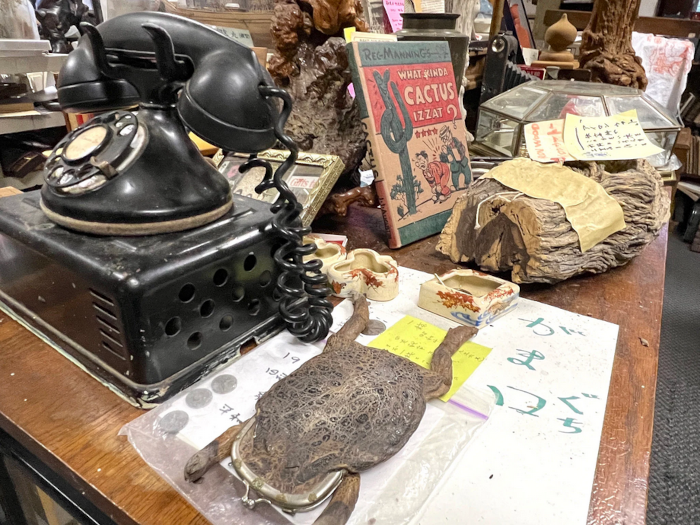
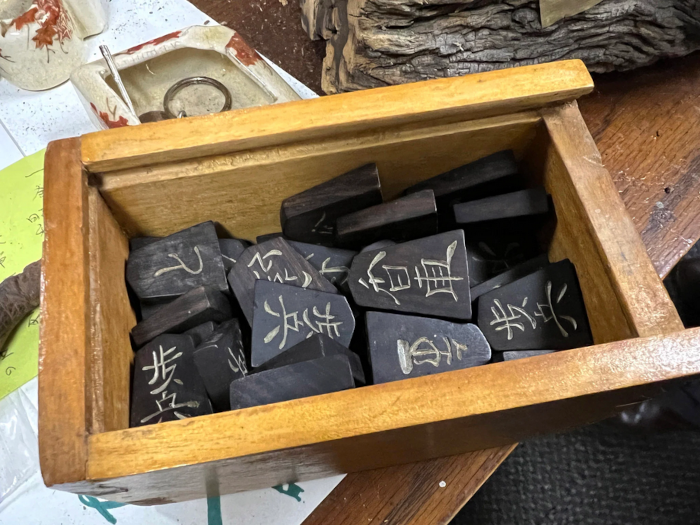
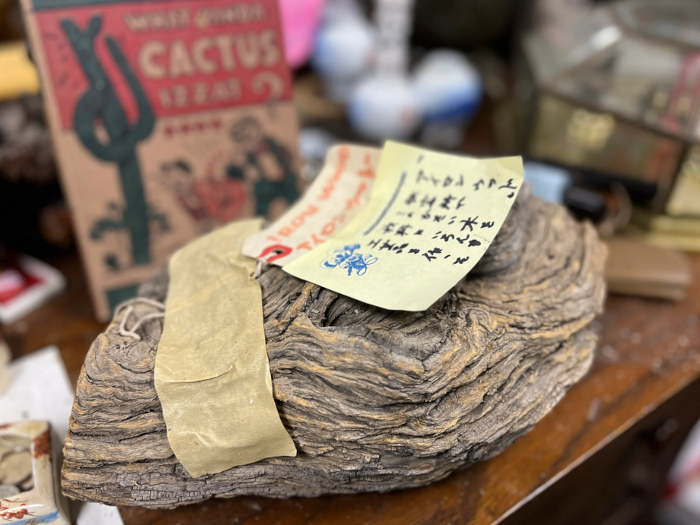
A compact wooden box revealed a Hinomaru. The patriotic flag was found in every Japanese home before World War II. The red circle represents the rising sun.
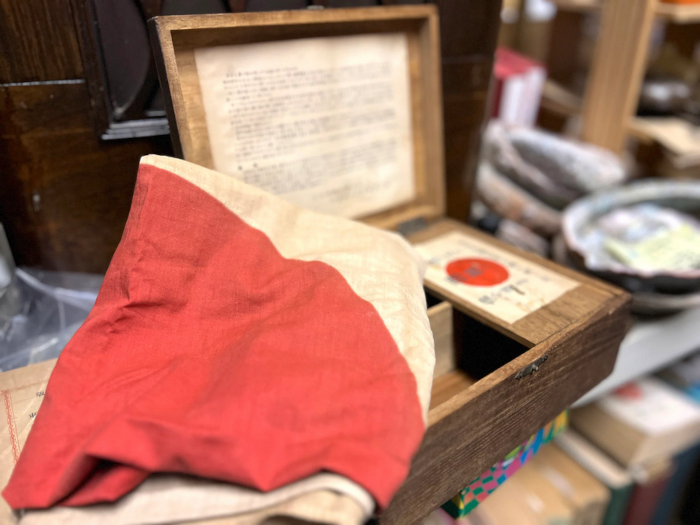
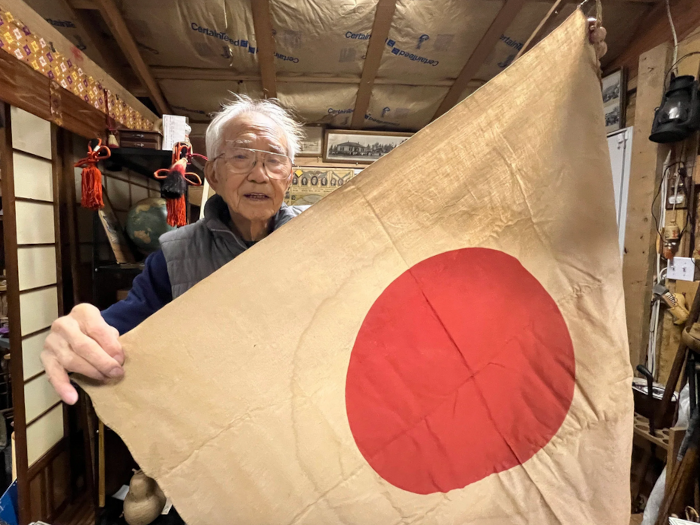
Mr. Takemura showed me a photo of his grandfather, on the deck of SS Cleveland in March 1953, asking former President Truman for his autograph. Truman signed Chiyokichi Natsuhara's travel booklet with: Best wishes Harry Truman.
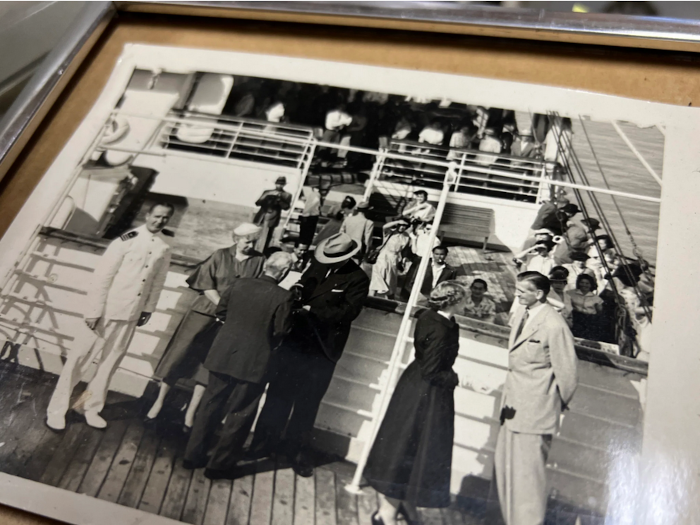
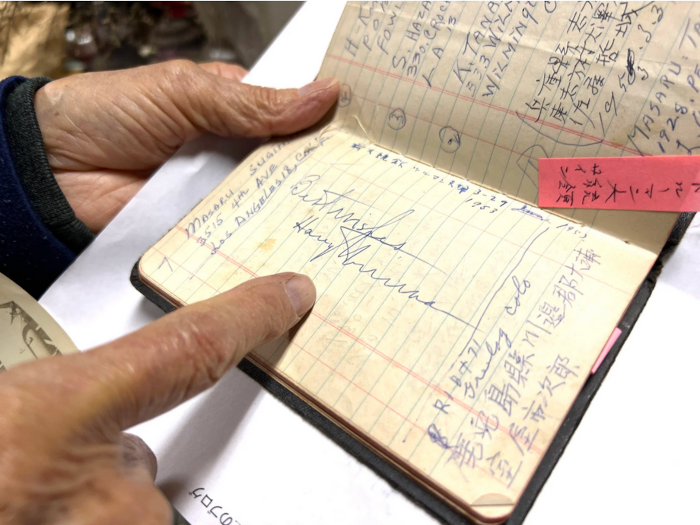
The main room of the Museum was packed with MANY more intriguing and wonderful sights.
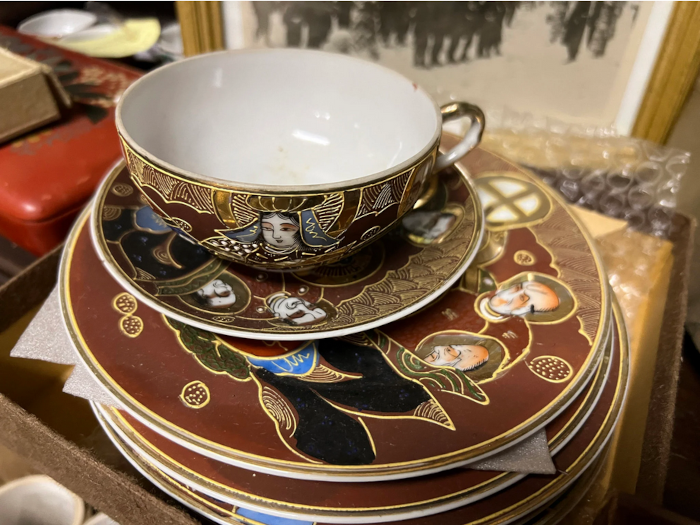
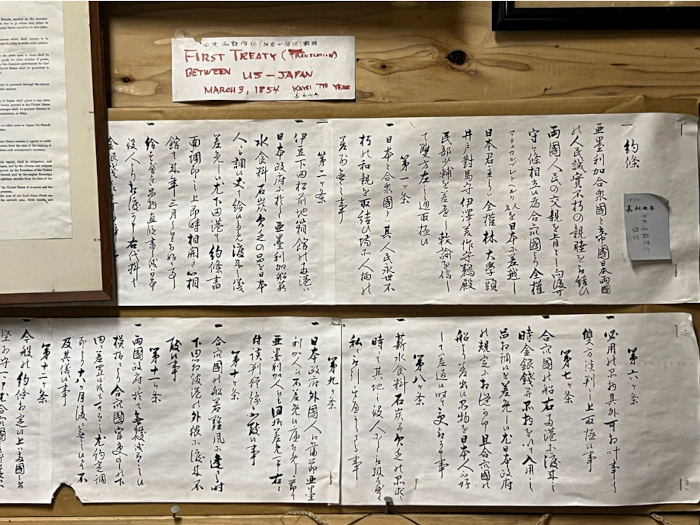
Before heading over to Mr. Takemura’s house to view some precious books, we had a quick stopover in the downstairs garage.
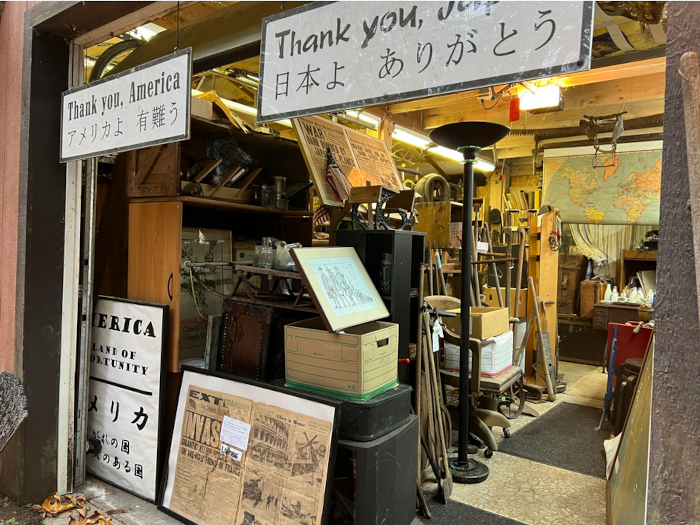
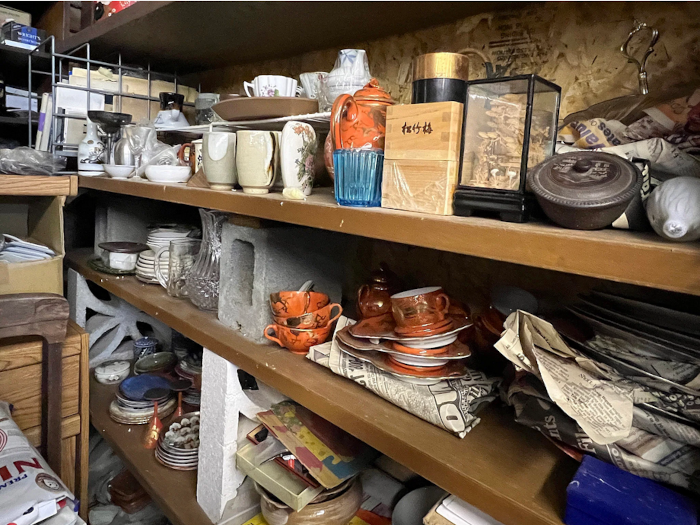
At his private home, Mr. Takemura showed me three volumes of Commodore Perry’s Japan Expedition reports from the 1850s. The historic set of books was purchased from a library in California for $1000.
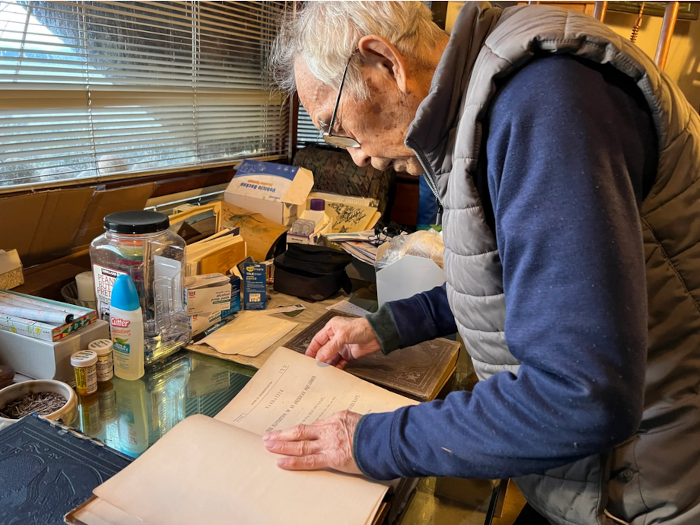
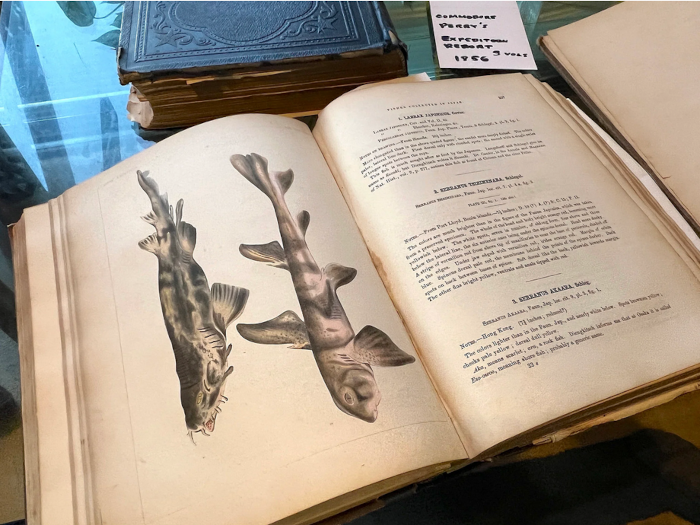
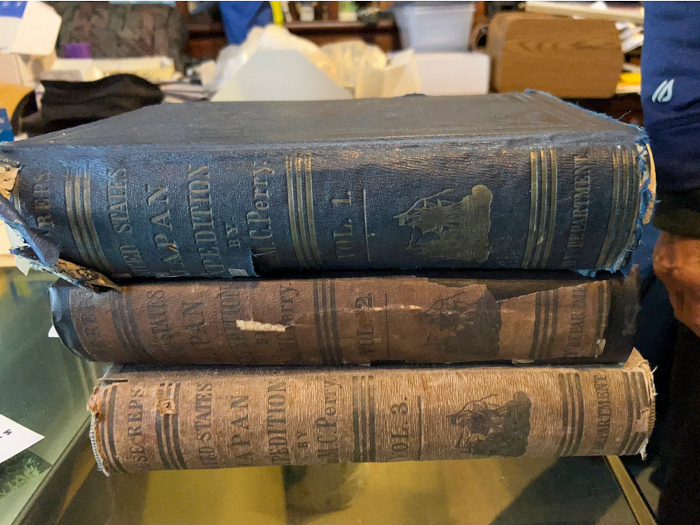
The magic of the moment continued as Mrs. Takemura presented me with an elegant homemade wagashi and the best whipped matcha I have ever sipped. (I learned that Mrs. Takemura is a tea master and teacher of the Tea Ceremony.)
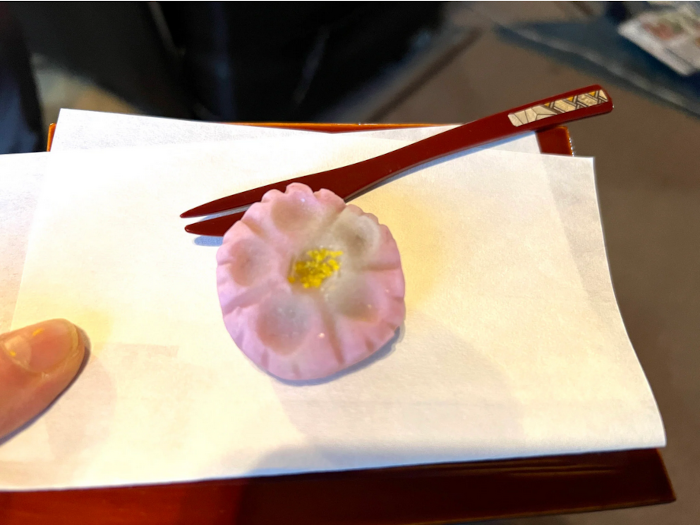 My afternoon was filled with awe. Via the passion of Mr. Takemura and his remarkable collection, I was transported through time and space!
My afternoon was filled with awe. Via the passion of Mr. Takemura and his remarkable collection, I was transported through time and space!
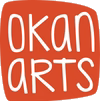
To read the original "Japan Next Door" blog entry by Patricia Belyea of Okan Arts, click here
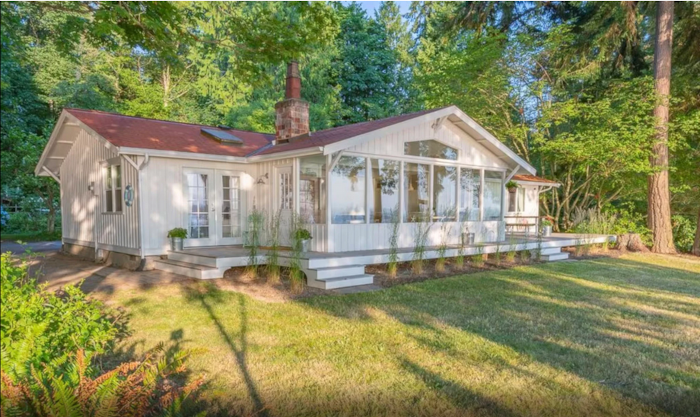
SEA SALT COTTAGE (Hansville, WA)
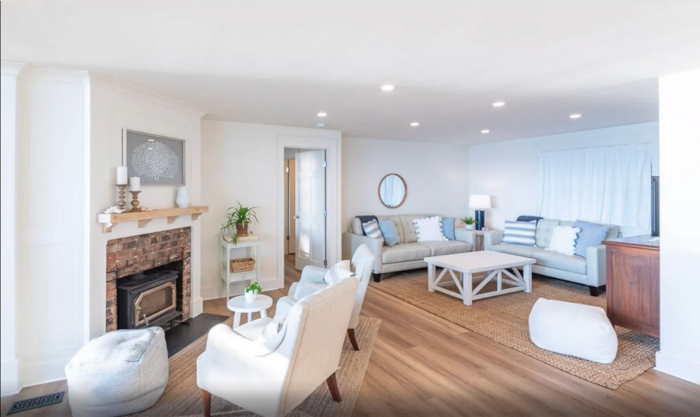
Interested in staying close to Seattle and next door to the Issei Pioneer Museum in Hansville?
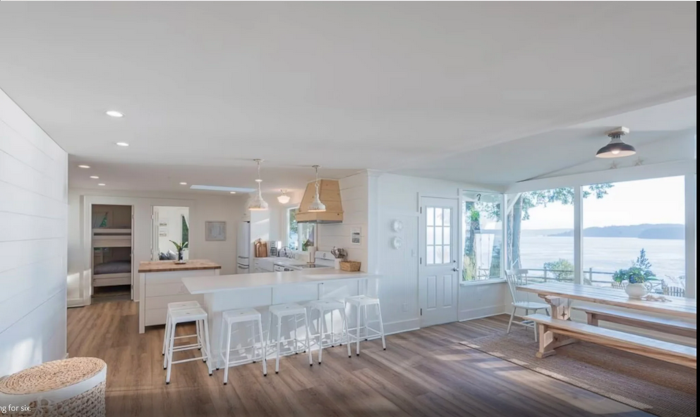
This three-bedroom, two-bath rental house, with a 180 degree view of the Hood Canal, is a favorite of mine.
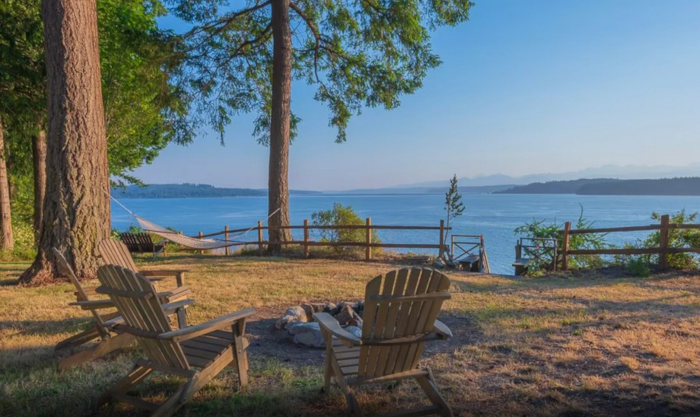
To learn more about staying at Sea Salt Cottage, click here

To learn more about Okan Arts, click here
Okan Arts, a petite family business, is co-owned by mother-daughter duo Patricia Belyea and Victoria Stone. Patricia and Victoria sell Japanese textiles online, host creative quilting experiences, and lead quilting & textile tours to Japan. FOLLOW OKAN ARTS ON INSTAGRAM @okanarts
一世パイオニア資料館
www.isseipioneermuseum.com
注